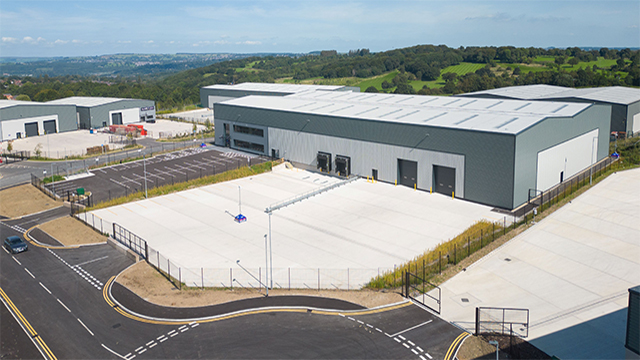Intu chief executive David Fischel is to leave the shopping centre giant after 33 years, having led the business since 2001.
Fischel had planned to retire when intu’s proposed £3.4bn merger with rival REIT Hammerson completed, but has remained since the deal collapsed in April – much to the relief of the board, which says it is “enormously grateful to David for agreeing to remain in post for a longer period than he had envisaged”.
His future career plans are so far undecided. “As far as I’m concerned, I haven’t made any plans beyond making sure that the company is handed over in excellent shape to my successor. So I haven’t thought about it at all,” he says.
“It could be quite some time – we won’t necessarily find the right person immediately. I’m assuming it will take more than a few months.”
He will only ultimately depart once a new successor is found. But as Fischel prepares to leave, the shopping centre owner looks to be facing tough times ahead.
Dragging down
Intu’s portfolio has been written down by 5.6% in the six months to 30 June, dragging down its adjusted net asset value (NAV) to 362p per share. On the morning of its interim results announcement, its shares tumbled by 9%.
The company, which also racked up exceptional administration expenses totalling £6.3m during the period in relation to Hammerson’s aborted takeover bid, saw adjusted NAV per share fall 11.9%, from 411p at 31 December.
Intu blamed the slump on falling property values, which led to a revaluation deficit of £650.4m – highlighting a reduction of 5.6% on a like-for-like basis, and down from a £17.7m surplus during the first half of 2017.
The deficit was in turn attributed to weakening sentiment in the UK retail property investment market. During the six-month period, intu’s average net initial yield increased by 33 basis points to 4.69%.
“We remain concerned around the valuation of ‘prime’ retail assets – the 33bp increase in intu’s topped-up initial yield should be the start of the re-pricing, and not the end,” noted analysts at Peel Hunt.
“With LTV approaching 50%, further re-pricing will have a meaningful impact on net assets and we downgrade our December 2018 forecast by 20%. The prevailing deep discount does not adequately reflect the risks, in our view.”
Fischel would not clarify whether he thought values would continue to decline. “I think we have learnt over the years not to speculate on the direction of future values,” he says.
Business resilience
Despite the drop in revaluation, the business has stayed resilient during its first half. “We’ve had like-for-like net rental income growth and very solid underlying performance – 97% occupancy for the past five years in our centres and lettings ahead of previous rents,” he says.
“There is very negative sentiment towards retail and retail property, and a challenging retail background. In that context, if you look at the performance of our centres, these results are a fantastic testament to how good they are.”
Like-for-like net rental income grew by 1.3% in the period, driven by new lettings and rent reviews despite a 0.9% hit from a recent wave of company voluntary arrangements and administrations among retailers.
Intu is now targeting full-year growth in like-for-like net rental income at the lower end of the stated range of 1.5-2.5%, barring further retail failures. It is aiming for 2-3% growth pa during the next three-to-five years.
“Retailers are continuing to take flagship stores in prime destinations – it’s what they want, so we continue to do deals with the top ones,” says Fischel, citing recent lease agreements with Next, Zara and Abercrombie & Fitch.
“Retailers understand in a multichannel world that they need the best physical stores in the right places. [And] to some extent the shake-out going on in the UK is beneficial to us in the medium term, because it takes out inferior space.”
Matthew Roberts, chief financial officer at intu, adds: “Our centres are, for all intents and purposes, full. We have a rotation of tenants so our centres look better every year and more importantly, the customers coming into our centres rate them highly. Operationally, we are doing a good job.”
Disposals strategy
In the meantime, intu will also forge ahead with its disposals strategy, which has so far resulted in more than £1bn in disposals over the past four years. These included a joint venture with LaSalle Investment Management on a 50% stake in intu Chapelfield, Norwich, for an initial net consideration of £148m, completed in January.
Further disposals and part-disposals are in the pipeline, since around two-thirds of its portfolio is fully owned. “We will continue to sell down stakes in our centres over the next few years,” says Roberts.
One of these could be the sale of all or half of its ownership in its 1.3m sq ft Derby shopping centre, as previously revealed by EG.
Either way, pressure on the retail sector does not show signs of letting up anytime soon. Intu’s new leader will certainly have their work cut out in what is anticipated to be another difficult year for retail.
Analysts at JP Morgan Cazenove write: “The company has a high-quality shopping centre portfolio and management is moving it in the right direction, but we think this will take time and we await further evidence of improvement in the wider UK retail market.”
To send feedback, e-mail pui-guan.man@egi.co.uk or tweet @PuiGuanM or @estatesgazette











